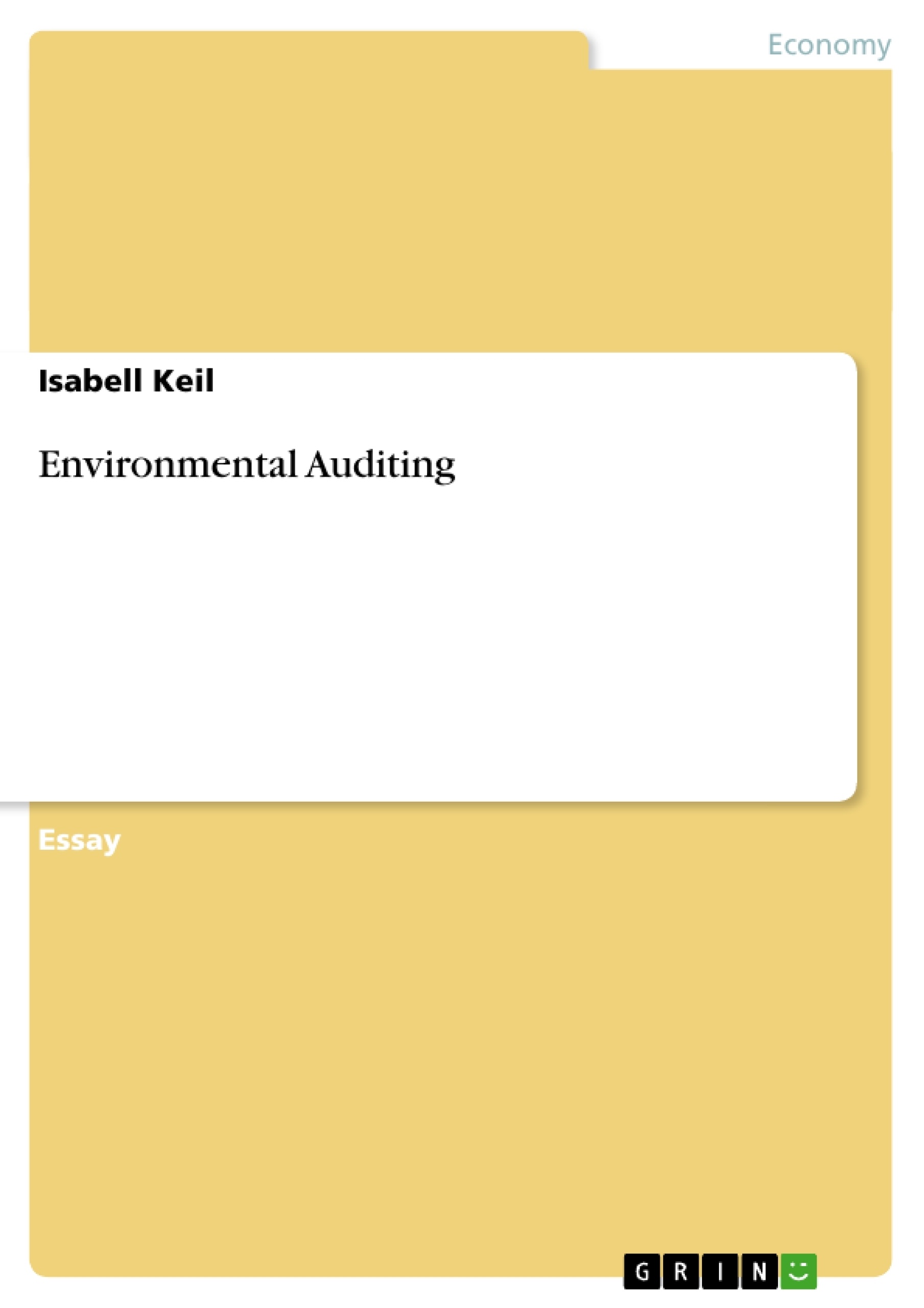Businesses have become increasingly aware of environmental implications on their operations, products, and services. Environmental risks may have serious consequences for the prospects of a company, with particular financial consequences such as clean up costs or fines if a company fails to meet regulations. Environmental sensitive industries such as oil companies, waste management, or chemical industries are especially jeopardised.
Various pressure groups, such as the public, investors, customers, employees, media, or business partners are interested in the environmental activities of a company. Greater attention is paid to the way the company manages and improves its environmental performance. In some countries, such as Sweden, Denmark, and the Netherlands, there exists a complex and strong legislation regarding environmental behaviour. Companies are required to meet certain conditions to continue their operations and various standards have been developed in order to compensate for the lack of legislation in other countries. These standards are for example the British Standard for Environmental Management in the UK, ISO 14001 from the International Standards Organisation, or the European Union’s Eco- Management and Audit Scheme. These standards demand the establishment of an environmental management system, which is a framework of environmental objectives within which a company has to operate, and include the compliance of environmental regulations and statutes.
Internal environmental audits have to be carried out to ensure the effectiveness of the environmental management system. These help to estimate the risk of environmental impacts, to prevent pollution, to allocate the source of pollution or to quantify liability accruals for known environmental issues. External environmental audits are required to validate reports being published and the information found during the internal audit.
a far-reaching knowledge and sufficient competence. But some environmental issues are too complex and only professionals, such as engineers for example, can deal with them.
The environmental audit becomes an essential and vital component of the environmental management profession. The demand for skilled auditors has been risen, but a professional body of environmental auditors to ensure the competence of an environmental auditor does not exist. Various approaches to tackle these circumstances have been made.
...
Table of Contents
- EXECUTIVE SUMMARY
- APPENDICES
- LIST OF ABBREVIATIONS
- REFERENCES
- BIBLIOGRAPHY
- Appendix 1
- Appendix 2
- Appendix 3
Objectives and Key Themes
This paper explores the growing importance of environmental issues in business operations and examines the different approaches to environmental protection taken by various countries, particularly focusing on Scandinavian countries like Sweden, Denmark, and the Netherlands, and contrasting these with the UK's approach.
- The increasing significance of environmental issues in business operations.
- The impact of pressure groups on environmental legislation and corporate behavior.
- Different approaches to environmental regulation in Scandinavian countries and the UK.
- The role of environmental auditing in ensuring compliance and improving environmental performance.
- The need for qualified environmental auditors and the challenges of establishing a professional body.
Chapter Summaries
The executive summary highlights the growing awareness of environmental risks for businesses and the importance of managing these risks for financial stability and reputation. It emphasizes the increasing pressure from stakeholders, including investors, customers, and employees, for companies to demonstrate responsible environmental practices.
The paper then delves into the diverse legal frameworks governing environmental behavior in different countries. It specifically explores the comprehensive environmental legislation in Scandinavian countries, including the Netherlands, Denmark, and Sweden, contrasting these with the UK's more limited regulatory approach.
The focus then shifts to environmental auditing. The paper discusses the role of internal and external environmental audits in ensuring the effectiveness of environmental management systems, minimizing environmental risks, and validating published reports.
The paper further addresses the importance of skilled environmental auditors and the need for professional qualification. It explores the various approaches to addressing this need, including the development of standards by ISO, IAASB, and APEA.
Keywords
This paper focuses on environmental auditing, environmental management systems, corporate governance, environmental legislation, stakeholder pressure, sustainable development, environmental risks, and the qualification of environmental auditors. It also examines the impact of different national approaches to environmental protection, particularly in Scandinavian countries and the UK.
- Quote paper
- Isabell Keil (Author), 2003, Environmental Auditing, Munich, GRIN Verlag, https://www.grin.com/document/28895




